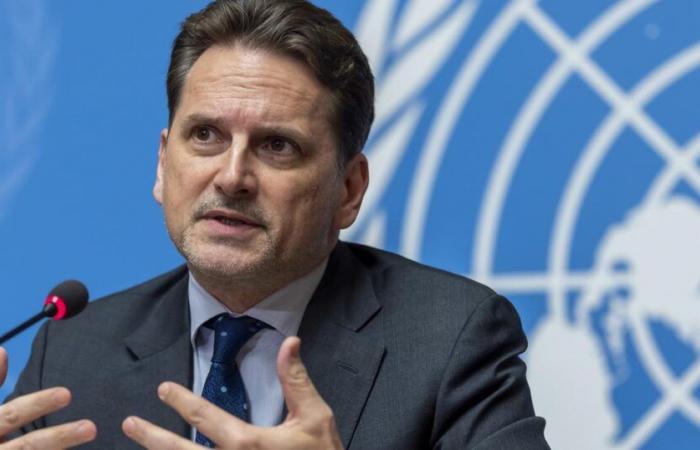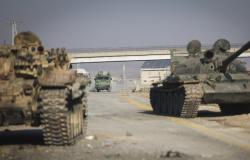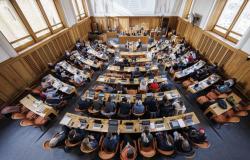
As abuses accumulate in various world conflicts, ICRC President Pierre Krähenbühl is concerned about the overwhelming erosion of respect for international humanitarian law. He deplores a lack of political will to actually enforce existing rules.
Ukraine, the Middle East, Sudan, Yemen and the Democratic Republic of Congo, deadly wars are increasing around the world and giving rise to serious human rights violations. And while the International Committee of the Red Cross (ICRC) counts more than 120 theaters of war around the world, its president denounced on Friday “a problem of widespread lack of respect for international humanitarian law”.
“This is why the ICRC is using every opportunity to express its indignation, because our colleagues are on the ground and observing the absolutely dramatic human cost,” he continued on Friday in La Matinale.
No more “handbrake”
These humanitarian workers have sometimes been involved for decades. “We are in Israel and the occupied territories [palestiniens] for 70 years, in Afghanistan for 40 years, in Yemen and Congo for 35 years… There seems to be no prospect of bringing these conflicts to an end and this must stop,” insists Pierre Krähenbühl.
The president of the ICRC is concerned about a “norm of abuse” which is taking hold and its long-term repercussions. “There is the feeling that there is no longer any handbrake, that no one seems to want to intervene to bring about political solutions.” In particular the countries allied to the states which commit these violations, he insists.
The main problem today is a lack of political will to apply existing rules
Pierre Krähenbühl cites in particular the situation in the Gaza Strip, besieged and shelled for more than a year by the Israeli army. “No human being should remain indifferent when we see the extent of the tragedies currently happening in Gaza. This concerns us all. If we accept this type of behavior on the battlefields today, let’s not be surprised that it takes hold and creates an environment of generalized insecurity on the planet,” he warns.
The senior humanitarian official also notes a lack of political will to actually apply existing rules. “When there was the Covid pandemic, there was a real mobilization. Whereas when there are armed conflicts, we observe them, we comment on the type of weapons used… But we would need to “Insurgent, we should all mobilize to say that war is not inevitable.”
ICRC national sections display their unity
From October 28 to 31, Geneva hosted the 34th International Conference of the Red Cross and Red Crescent, the results of which Pierre Krähenbühl welcomed. “I was very impressed by this conference,” he says.
“We managed to bring the entire community of States into the room, and with them all the national Red Cross and Red Crescent societies. We showed very strong unity and the States had to hear our calls and our indignation over the current lack of respect for international humanitarian law,” he says.
The president of the ICRC emphasizes that the resolutions submitted by his organization were all approved on a consensual basis. “It’s a very good result and I am extremely proud of the work of our colleagues in recent days in the negotiations,” he rejoices, also noting the “very important” role played by the Swiss ambassador to the UN Jürg Lauber.
The courage to build bridges
Pierre Krähenbühl particularly welcomes a resolution bringing together the Palestinian Red Crescent and its Israeli equivalent, the Magen David Adom. “This has to be reflected on the ground, that’s for sure,” he says, but “succeeding in putting these two national companies back around a table is really a very concrete and very important signal.
Pierre Krähenbühl finally recalls the importance of dialogue. “I hear very often that political courage is not talking to others. My experience is exactly the opposite. Political courage is looking for bridge points. Whether between Russians and Ukrainians, between Israelis and Palestinians, we must be able to do in-depth work to remind people that humanitarian principles apply to everyone,” he asserts.
Comments collected by Pietro Bugnon
Web text: Pierrik Jordan





